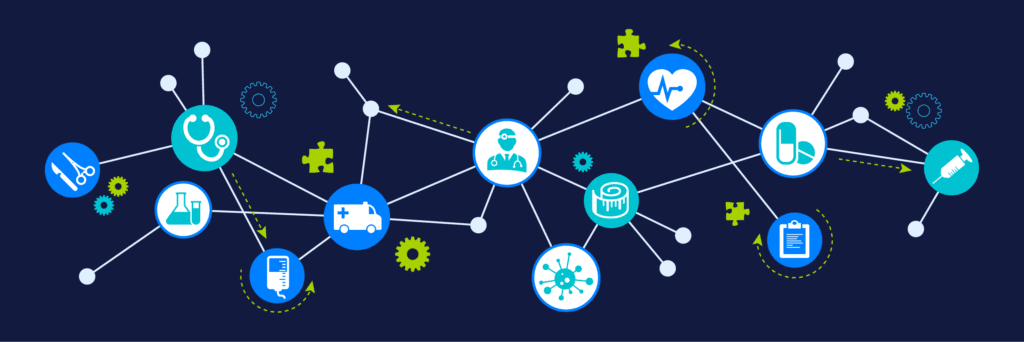Streamlining Healthcare Operations with SOPs: A Guide to Standard Operating Procedures in Primary Healthcare

Standardized processes are essential for ensuring patient safety, quality of care, and operational efficiency in healthcare. Standard Operating Procedures (SOPs) play a pivotal role in streamlining healthcare operations, including primary healthcare. In this guide, we will delve into the significance of SOPs in healthcare, explore their implementation in primary healthcare settings, discuss the benefits of standardized communication tools, and clarify the meaning behind the SOP medical abbreviation.
The Power of SOPs in Healthcare
Healthcare SOPs are detailed, step-by-step instructions that outline the specific tasks, processes, and protocols to be followed in healthcare settings. Here’s why SOPs are crucial in healthcare:
1. Patient Safety: SOPs provide standardized guidelines for healthcare professionals, ensuring consistent and safe practices throughout patient care processes. They minimize errors, reduce variability, and enhance patient safety.
2. Quality of Care: SOPs establish a framework for delivering high-quality care by outlining best practices, evidence-based protocols, and quality assurance measures. They help healthcare professionals deliver consistent and effective treatments and interventions.
3. Regulatory Compliance: Compliance with regulations and standards is paramount in healthcare. SOPs ensure that healthcare organizations adhere to industry-specific regulations, accreditation requirements, and legal obligations.
SOPs in Primary Health Care
Implementing SOPs in primary healthcare settings is essential for delivering efficient, standardized, and patient-centered care. Here are some key considerations for utilizing SOPs in primary health care:
1. Patient Triage and Assessment: SOPs outline standardized protocols for patient triage, assessment, and prioritization. They help healthcare professionals identify urgent cases, determine appropriate interventions, and allocate resources efficiently.
2. Routine Procedures and Protocols: SOPs provide clear instructions for routine procedures, such as taking vital signs, administering medications, conducting vaccinations, and managing chronic conditions. They ensure consistency in care delivery and reduce the risk of errors.
3. Infection Control and Prevention: SOPs play a crucial role in preventing and managing infections in primary healthcare settings. They outline protocols for hand hygiene, personal protective equipment (PPE) usage, sterilization, and environmental cleaning, minimizing the risk of healthcare-associated infections.
Standardized Communication Tools in Healthcare
Effective communication is vital for seamless collaboration and coordinated care in healthcare settings. Implementing standardized communication tools, alongside SOPs, enhances efficiency and patient outcomes. Here are some essential communication tools:
1. Electronic Health Records (EHRs): EHR systems enable standardized documentation, information sharing, and communication among healthcare providers. They enhance care coordination, reduce errors, and provide a comprehensive view of a patient’s medical history.
2. Clinical Decision Support Systems (CDSS): CDSS tools provide healthcare professionals with real-time, evidence-based guidance at the point of care. They assist in making informed decisions, following SOPs, and improving patient outcomes.
3. Interdisciplinary Team Meetings: Regular interdisciplinary team meetings ensure effective communication and collaboration among healthcare professionals. These meetings align team members, share information, discuss patient cases, and reinforce adherence to SOPs.
Demystifying SOP Medical Abbreviation
In healthcare, the term SOP may have another meaning. This abbreviation refers to emergency response protocols, particularly in disaster management or emergency situations. SOPs in this context outline predetermined mission-critical communication actions and workflows to be followed during crises, ensuring a coordinated and effective response.
The Inkling Digital SOP Software Solution
Standard Operating Procedures (SOPs) are vital tools in healthcare, including primary healthcare, for ensuring patient safety, quality of care, and operational efficiency. By implementing SOPs and utilizing standardized communication tools, healthcare organizations can streamline processes, improve care coordination, and enhance patient outcomes. SOPs serve as guides for healthcare professionals, ensuring consistent and evidence-based practices. Additionally, SOPs can aid in regulatory compliance and infection control.
By embracing SOPs and leveraging standardized communication tools, healthcare providers can deliver efficient, safe, and patient-centered care in primary healthcare settings. Contact or chat with us today to learn more about our content authoring capabilities!
